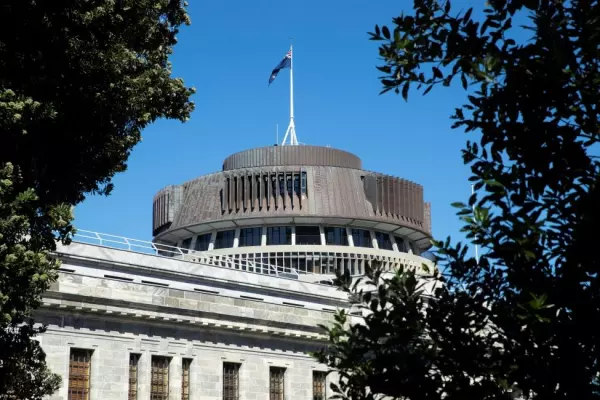Total government spending in the year to June 2022 is estimated by the Treasury to clock in at $142 billion.
In other words, one dollar in every four in the New Zealand economy this year will be spent on or by the central government.
To fund that activity, the government raises taxes from all of us, borrows or creates money, charges fees for services and takes dividends from the relatively small number of businesses in which it still holds a stake.
Overseeing that activity are ministers in a government, served by a core public service that provides policy advice and execution.
At the end of last year, there were 58,887 public servants employed in these roles, 40.5% of them in Wellington. Not included in these figures are teachers, nurses, police or the armed forces. This does not count the army of privately contracted cleaners and other service providers, nor the myriad expert consultants on short term contracts.
These core public servants, their relationships with ministers and with New Zealanders, their strengths and weaknesses, their effectiveness and inefficiencies, their cost, value and contribution to our relatively high-functioning society are what BusinessDesk will focus on in this series over the next few months.
Lapdogs or watchdogs?
Some readers will inevitably ask: how can you write objectively when this reporting project is funded by New Zealand on Air under the $55 million Public Interest Journalism Fund established by the current government?
It’s a fair question.
Let me answer it a couple of ways.
Firstly, BusinessDesk is a business.
If the government offers us free money to undertake journalism, we will inevitably explore the opportunity.
We also know that government funding for private enterprise can never be guaranteed or regarded as sustainable. We expect it to disappear, and we cannot plan for a sustainable future based on such funds continuing to flow.
Rather, we see an opportunity to build our capability, resources and institutional capacity to become NZ’s most authoritative and reliable source of reporting on NZ's public sector.
With this funding, we intend to become a ‘must-read’ publication for public servants, ministers and their political advisers, the professional services firms whose livelihoods are in part determined by who decides what, what is decided, and why decisions are made in the occasionally mysterious ‘Wellington beltway’.
Secondly, we are journalists.
BusinessDesk is a mature, experienced and well-established outlet for high-quality reporting, analysis and commentary across the NZ political economy.
We can only maintain that reputation by calling it as we see it.
Where the public service is doing well, we will say so.
Where it is failing or could do better, we will report that too.
Our first major piece, today, sets the international context for the performance of our public service compared to other countries. The message is that we scrub up well. We know that many will see that as no more than evidence that other public services are even worse!
While the results of this publicly funded project will be available outside the BusinessDesk paywall, our long term future depends on growing and sustaining our subscriber base by providing the quality and insights that justify the price of subscribing.
A cheque from the government to kick off a much deeper capacity to report its own activities is very welcome. But it is no way for us to run a sustainable business in the long term.
That depends on credibility. If we mess that up, we lose.
We aspire to a series that will be fair, frank and accurate. We want our coverage to resonate as reflecting the shared reality – the good and the bad – of public servants and those who interact with the public service. In the end, that is all of us.
Pattrick Smellie
Editor
BusinessDesk
Do you know something we should know? Email BusinessDesk's public sector investigation team: [email protected].















